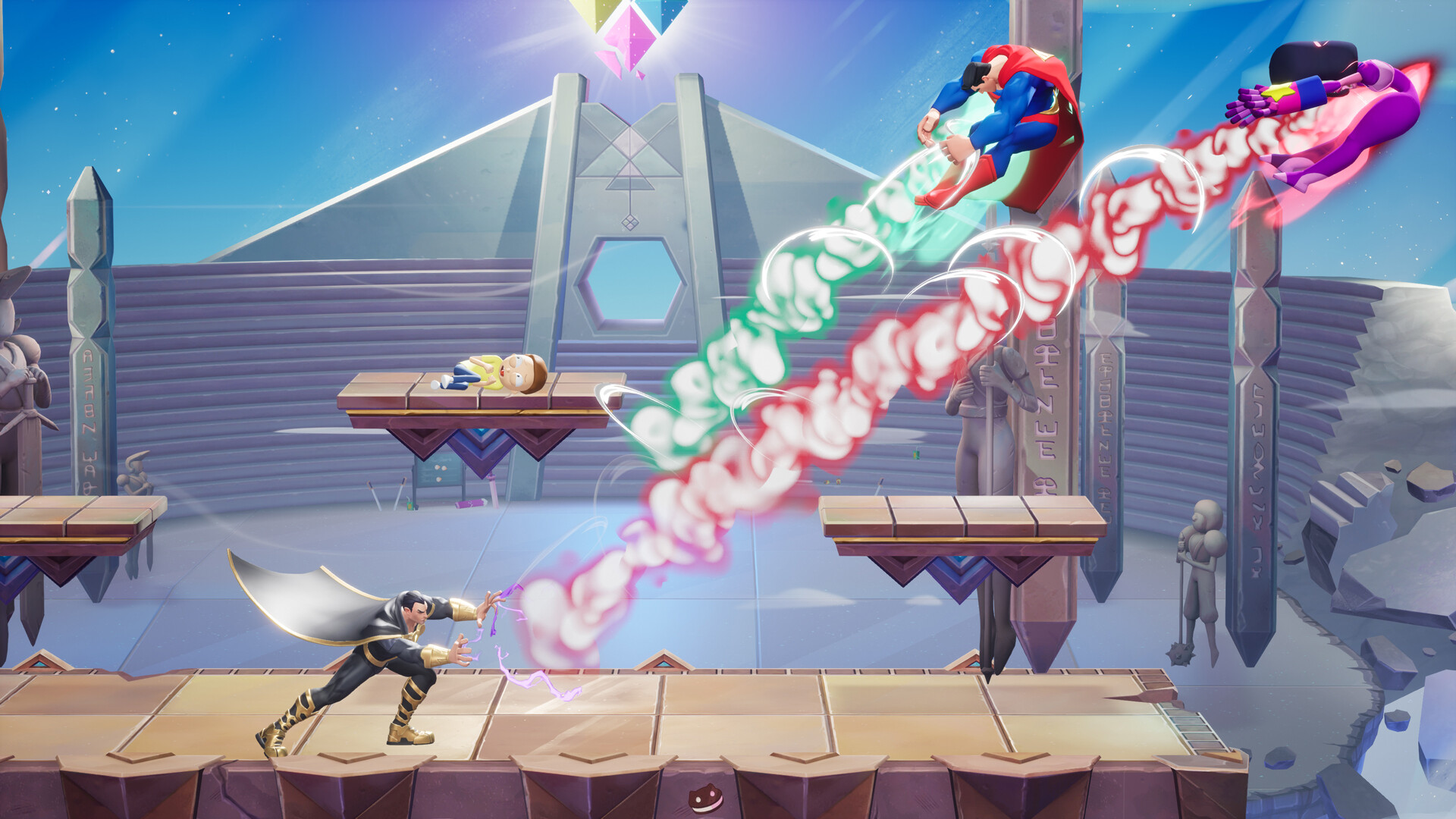This weekend marks an end to a short yet bizarre chapter in gaming history as MultiVersus, the platform fighter featuring a variety of Warner Bros. characters, officially shuts down. Designed to rival Super Smash Bros., the game had a promising debut but fell victim to poor decisions and ultimately ceased operations around a year after its full relaunch.
The demise of MultiVersus isn’t shocking given the recent trend in the mid-2020s, where numerous multiplayer games have been decommissioned shortly after launching. Titles like Babylon’s Fall, Crossfire X, and Gundam Evolution have faced similar fates. Some fans attribute its downfall to monetization strategies, while others point to significant differences in gameplay between its open beta and the final version launched in 2024.

What Contributed to the Shutdown of MultiVersus?
Many believe that the game’s diverse character roster played a role in its decline. Warner Bros. possesses a vast array of intellectual properties (IP), and while the intention was to attract a wide audience, this meant mixing iconic figures like Batman and LeBron James with less recognizable characters from Gremlins and minor Adventure Time roles. Fans expected to see more heavyweight characters from the DC universe and beloved Cartoon Network icons; their absence highlighted a critical oversight.
The Rise and Fall of Crossover Events
Crossovers used to be delightful surprises for audiences. Those nostalgic for the 90s remember collaborations like Jimmy/Timmy Power Hour and team-ups featuring Kim Possible alongside Lilo & Stitch. The rarity of such crossovers added to their charm. However, in today’s oversaturated market, seeing beloved characters together has become commonplace, leading to diminishing returns on excitement.
Before and during MultiVersus‘ run, numerous franchises have crossed paths—from Batman and Marvel characters in Fortnite to horror figures invading Mortal Kombat. Yet, some players feel the increasingly exhaustive range of IP skins detracts from the gaming experience. Activision plans a more restrained approach in future Call of Duty titles, as many players are less enthusiastic about their favorite characters engaging in combat.

The Financial Risks of Chasing Trends
Similar to the fate of Suicide Squad, MultiVersus became another casualty of Warner Bros.’ attempts to force its way into a lucrative market. After the full game launch, Warner Bros. acquired Player First Games, which ultimately led to the studio’s closure along with the game. Despite this, crossovers are likely to continue, with upcoming projects teasing the return of DC characters mingling with Marvel after two decades.
What makes a game successful? A successful game often combines familiar characters, engaging gameplay mechanics, and community support. When one of these elements is mismanaged or overlooked, the game can falter.
Why do so many multiplayer games fail shortly after release? Many multiplayer games struggle due to lackluster support, poor monetization strategies, or failure to meet player expectations. A lack of engagement can quickly lead to player attrition.
What lessons can be learned from the closure of MultiVersus? The closure of MultiVersus underscores the importance of understanding your audience and balancing innovation with nostalgia. Developers should focus on creating immersive experiences rather than simply relying on popular IP.
Will crossovers continue to be popular in gaming? Yes, as long as studios can create compelling narratives and engaging gameplay around these crossovers, they’ll likely remain a strong draw for players.
The story of MultiVersus reminds us that the pursuit of success in gaming is complex and multifaceted. As we bid farewell to this title, let’s continue to explore the evolving landscape of gaming and content creation. For more insights, check out Moyens I/O.
